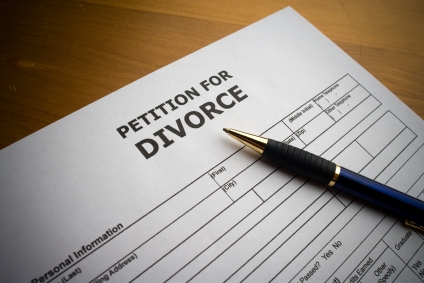
Pop singer, Cheryl Cole’s divorce from her England football husband Ashley would be “clean, swift, amicable and smooth” reported The Sun Newspaper at the end of May. And yet the divorce papers filed on her behalf were said to cite the reason for the breakup of the marriage as being Ashley Cole’s “unreasonable behaviour”.
if Cheryl truly wanted an amicable and smooth divorce, Ashley may have wondered why irreconcilable differences or the like wasn’t cited as the reason for the divorce. Few like to be accused of behaving so badly that their partner cannot ‘reasonably’ be expected to live with them.
Every so often, at my family law practice in Bath & Bristol, I am approached by clients who say they want a divorce based on “irreconcilable differences”. They are in an unhappy marriage and just want to bring it to an end. I explain that it is not possible to obtain a divorce based on “irreconcilable differences” in the divorce courts of England and Wales.
Divorce in England & Wales is based on a marriage having “broken down irretrievably “. But there is a complication. This breakdown must be proved by evidencing only one of five “facts” laid down by the law – Matrimonial Causes Act 1973. They are Adultery, Unreasonable Behaviour, Desertion, Two years’ separation with consent and Five years’ separation without consent.
Three of these methods of proof – Desertion, Two (with consent) and Five years’ separation – involve a considerable period of delay (at least two years) before a divorce is possible at all. Similarly, adultery can only be relied upon if it to has taken place. This means unreasonable behaviour is the method of choice for most couples in cases where no adultery can be proved and a divorce is wanted sooner rather than later.
I recently worked with a husband from Bath who was separating from his wife. They had decided their marriage had irretrievably broken down. To help them work through the legal, financial and practical issues arising from their decision, they adopted the dispute resolution process known as Collaborative Law Practice. At a face to face meeting between them, her collaborative family solicitor and I, we discussed how to prove that the marriage had irretrievably broken down for the purposes of a divorce
The lawyers helped the husband and the wife together draft allegations of the unreasonable behaviour that were not unnecessarily confrontational and yet fulfilled the requirements of a District Judge sitting in the Bath Divorce Court. A task not so easily done at a distance
Despite the apparent fault based process, the collaborative law process enabled this divorcing couple to meet their goal and achieve an amicable divorce. I am interested in hearing how others have dealt with meeting the criteria for “Unreasonable Behaviour” AND achieve an amicable divorce.

